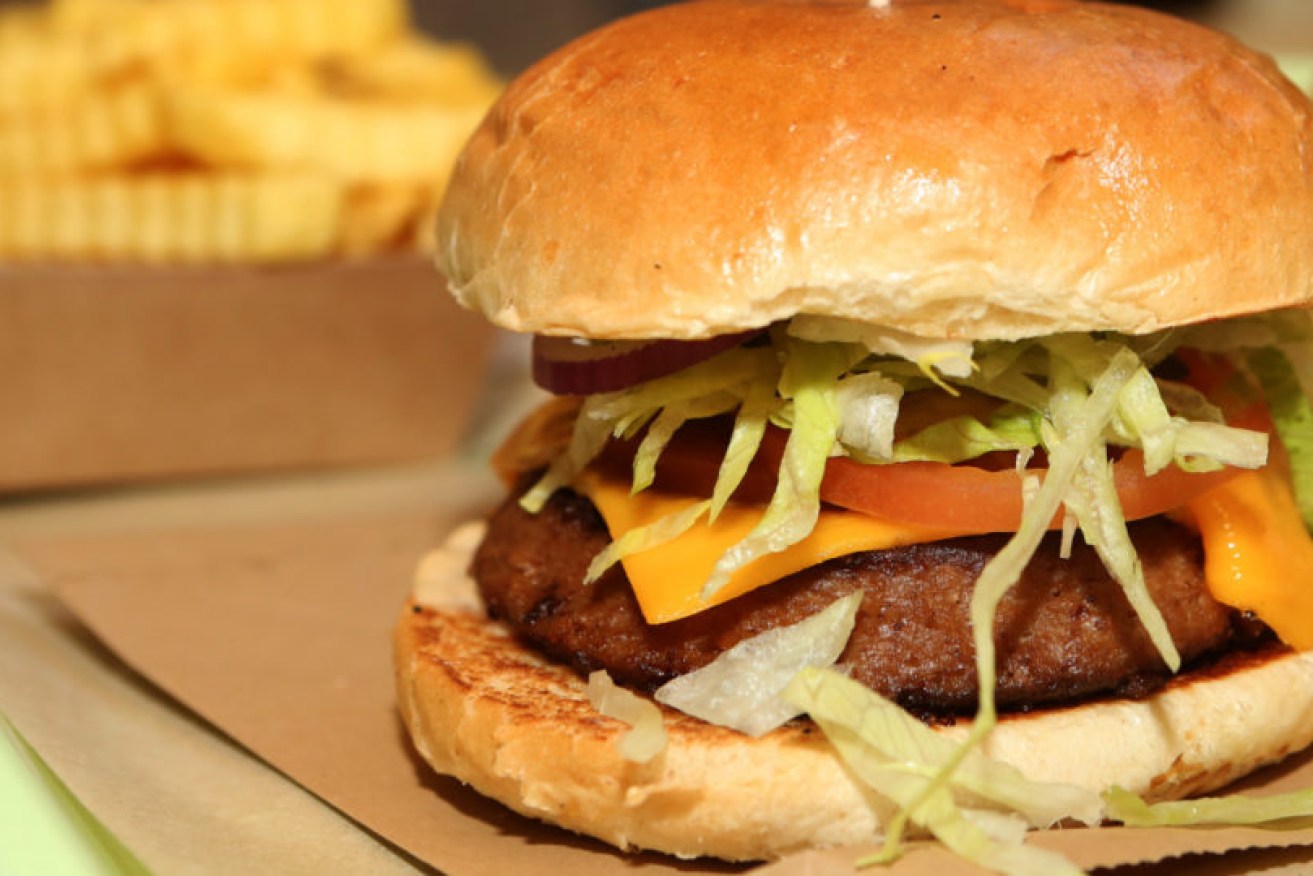Why meat-free products aren’t always a healthy alternative
As the number of Australians eating plant-based diets increases, so does the availability of meat-free products – but new research shows this seemingly healthy alternative isn’t all it may seem.

The number of meat-free products has grown exponentially in the past decade. Photo: Getty
Fake barbecue meats, imitation bacon and falafels are now common sights on supermarket shelves, their packaging often promoting them as a healthy alternative to their animal-based counterpart.
Even fast-food restaurants have jumped on the bandwagon, offering vegetarian and vegan alternatives to the country’s takeaway options.
The Heart Foundation today released the results of a survey of more than 550 meat-alternative products, finding many of them were highly processed, containing dangerously high salt levels.
The foundation analysed the products’ nutrition contents, in an undertaking in conjunction with The George Institute for Global Health and VicHealth, and has named the saltiest products on the market.
The worst offender was a vegan pie, Bean Supreme Laksa Pie, which packed in more than 50 per cent of an adult’s recommended sodium intake at 2.5 grams per serve.
In general, the study found faux bacon topped the sodium stakes, with the average product containing two grams of salt per 100 grams. However, its pork cousin contains an average of almost three grams of salt to every 100 grams.
The seemingly harmless falafel is more popular than ever, with five times as many pre-made falafels available in supermarkets now than in 2010. However, they also pack a fair punch of salt: 1.3 grams per 100 grams, the same amount as meat-free sausages.
Monjay Mezza Traditional Falafel and Spinach Falafel (three grams of salt per 100 grams) was the saltiest on the product, and Naturally Falafel varieties were the best in salt rankings, with just 0.3 grams.
Fry’s Family Burgers quinoa and brown rice protein were the saltiest meat-free barbecue items analysed (1.7 grams) versus Unreal Co. Italian beefy burger at 0.3 grams.
The recommended daily salt intake is five grams – or just less than a teaspoon.
Shop smart and sodium-free
The overall message from the three health bodies is to consider most pre-made meat-alternative foods as sometimes foods.
As with most foods, the general rule is the less process, the more healthy and nutrient-rich it’s going to be.
VicHealth’s Lyn Roberts said those following meat-free diets – or just trying to reduce their meat intake – could still find simple, tasty options that contained lower salt levels. And, they were often cheaper.
Roberts recommended things like plain tofu (a pre-marinated tofu can contain nearly 12 times more salt), legumes and fresh vegetables.
For those who are trying to decipher the nutrition labels on packaged foods, ideally look for goods that contain less than 120 milligrams of sodium per 100 grams of product, and up to 400 milligrams.
Salty secrets
High intakes of salt are linked to high blood pressure, which six million Australians suffer from, which in turn increases a person’s risk of heart attacks, strokes and kidney disease.
The Heart Foundation’s Victorian CEO Kellie-Ann Jolly said while it was positive to see more Australians turning to plant-based foods, it was equally important that consumers didn’t just rely on packaging and promotions when trying to choose the healthiest option.
It was vital, Jolly said, that shoppers read the nutrition labels to ensure they were buying the best option.
Lead author of the report, Clare Farrand, the George Institute’s senior public health nutritionist, said Australia was lagging behind other countries in setting salt-level targets for the food industry.
The United Kingdom, she said, had one of the lowest salt intakes of all the developed countries, something it had achieved through setting salt levels and regularly monitoring the food industry to make sure they were being adhered to.
Farrand said it was concerning the levels of sodiums in meat-free products hadn’t dropped in the past decade – despite their overall availability tripling in roughly the same period.
This article was first published on The New Daily.




